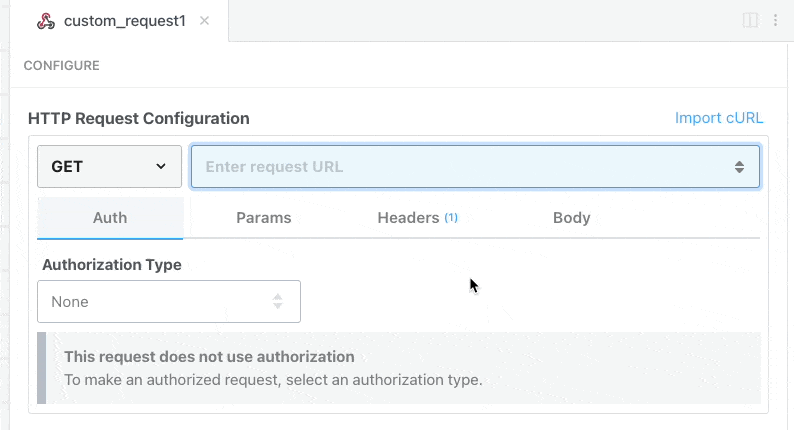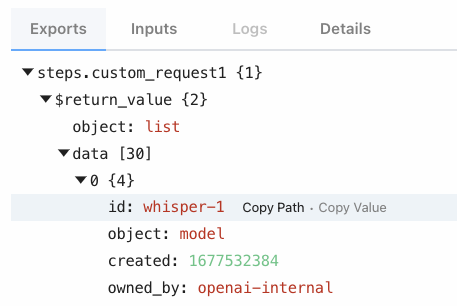What do you want to automate
with ConvertAPI and HTTP / Webhook?
Prompt, edit and deploy AI agents that connect to ConvertAPI, HTTP / Webhook and 3,000+ other apps in seconds.
Trusted by 1,000,000+ developers from startups to Fortune 500 companies
Popular Ways to Connect ConvertAPI with HTTP / Webhook#
Popular ConvertAPI and HTTP / Webhook Triggers#
Get a URL and emit the full HTTP event on every request (including headers and query parameters). You can also configure the HTTP response code, body, and more.
Get a URL and emit the HTTP body as an event on every request
Emit new event when the content of the URL changes.
Popular ConvertAPI and HTTP / Webhook Actions#
This action converts a base64-string-encoded file into the user-specified format. See the documentation
Use this action to convert files to the chosen format. See the documentation
Converts a website page to a specified format. See the documentation
Send an HTTP request using any method and URL. Optionally configure query string parameters, headers, and basic auth.
Send an HTTP GET request to any URL. Optionally configure query string parameters, headers and basic auth.
Overview of ConvertAPI#
ConvertAPI is a powerhouse for online file conversion, enabling you to transform files from one format to another effortlessly. It supports a plethora of file types, from common ones like PDFs and DOCs to more obscure formats. With ConvertAPI on Pipedream, you can automate file conversion tasks, seamlessly integrating them into workflows that trigger on events from other apps or schedules. Imagine converting incoming email attachments, processing uploaded documents, or archiving files in a different format—all happening automatically, in the background.
Connect ConvertAPI#
import { axios } from "@pipedream/platform"
export default defineComponent({
props: {
convertapi: {
type: "app",
app: "convertapi",
}
},
async run({steps, $}) {
return await axios($, {
url: `https://v2.convertapi.com/user`,
params: {
Secret: `${this.convertapi.$auth.api_secret}`,
},
})
},
})
Overview of HTTP / Webhook#
Build, test, and send HTTP requests without code using your Pipedream workflows. The HTTP / Webhook action is a tool to build HTTP requests with a Postman-like graphical interface.

Point and click HTTP requests
Define the target URL, HTTP verb, headers, query parameters, and payload body without writing custom code.

Focus on integrating, not authenticating
This action can also use your connected accounts with third-party APIs. Selecting an integrated app will automatically update the request’s headers to authenticate with the app properly, and even inject your token dynamically.

Pipedream integrates with thousands of APIs, but if you can’t find a Pipedream integration simply use Environment Variables in your request headers to authenticate with.
Compatible with no code actions or Node.js and Python
The HTTP/Webhook action exports HTTP response data for use in subsequent workflow steps, enabling easy data transformation, further API calls, database storage, and more.
Response data is available for both coded (Node.js, Python) and no-code steps within your workflow.

Connect HTTP / Webhook#
// To use any npm package on Pipedream, just import it
import axios from "axios"
export default defineComponent({
async run({ steps, $ }) {
const { data } = await axios({
method: "GET",
url: "https://pokeapi.co/api/v2/pokemon/charizard",
})
return data.species
},
})
Community Posts#

